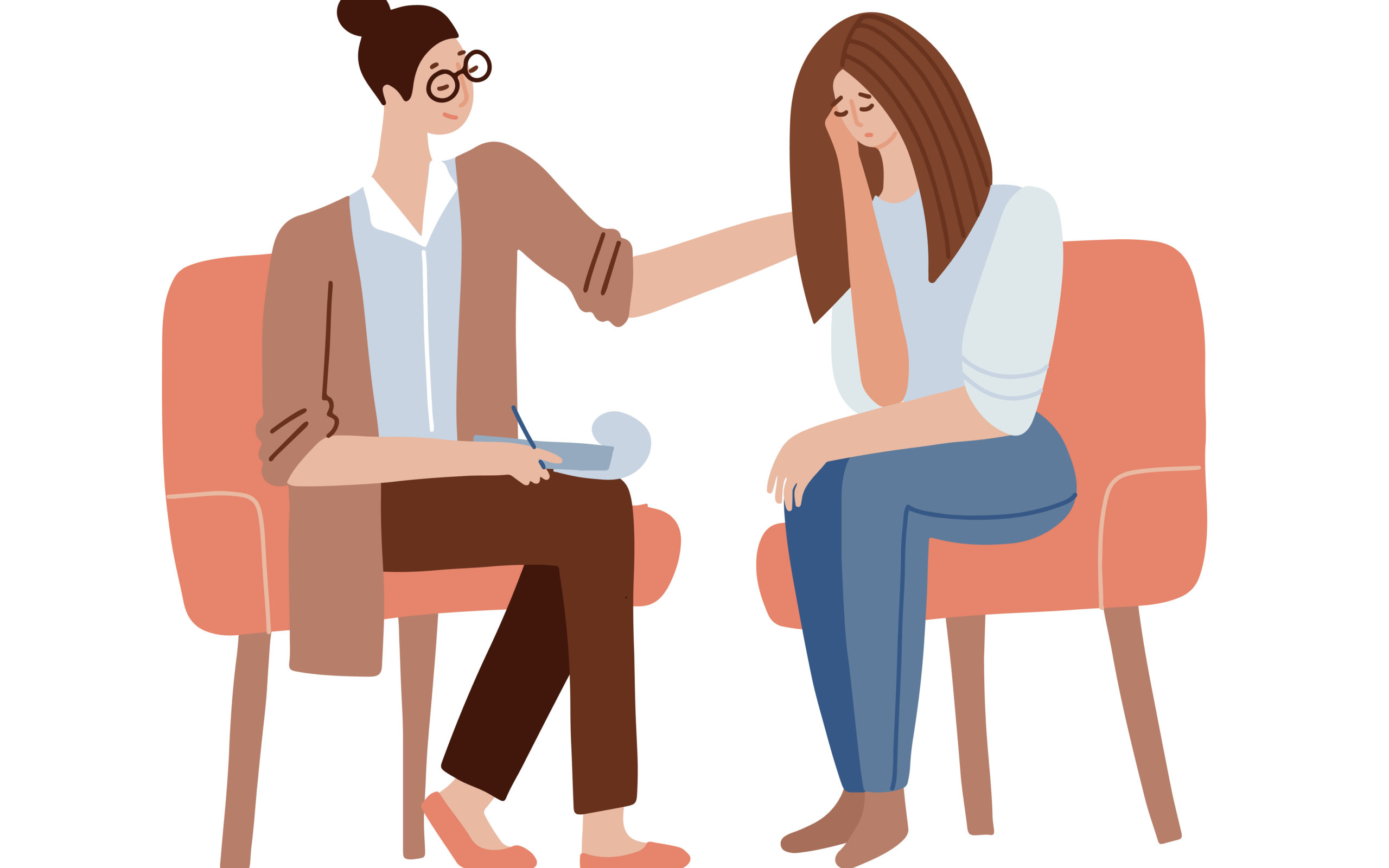Finding the Best Psychologist in Delhi: A Guide to Your Mental Wellness Journey
Finding the Best Psychologist in Delhi: A Guide to Your Mental Wellness Journey
Blog Article
Psych Treatment: A Comprehensive Guide to Results and methods

Cognitive-Behavioral Treatment
Cognitive-Behavioral Treatment (CBT) is a commonly utilized psychotherapeutic technique that concentrates on recognizing and changing useless thinking and habits patterns. Developed in the 1960s by Aaron T. Beck, CBT integrates behavioral and cognitive concepts to address different mental wellness problems, consisting of depression, anxiousness, and stress-related problems. The facility of CBT is that maladaptive ideas contribute to psychological distress and maladaptive habits. By restructuring these thoughts, individuals can attain substantial improvements in their psychological health and everyday functioning.
Strategies such as cognitive restructuring, direct exposure treatment, and skill-building exercises are typically employed. Cognitive restructuring involves tough and altering negative idea patterns, while direct exposure therapy aims to decrease worry and anxiousness with steady direct exposure to been afraid scenarios or things.
Evidence-based research study supports the efficiency of CBT for a wide variety of psychological conditions - Best Psychologist in Delhi. Its emphasis on ability purchase and self-help strategies empowers customers to proceed progression separately after treatment wraps up. The flexibility and performance of CBT have actually made it a foundation in contemporary psychotherapeutic practice
Psychodynamic Approaches
Rooted in the early concepts of Sigmund Freud, psychodynamic methods concentrate on checking out the unconscious mind and its impact on behavior and feelings. These approaches intend to uncover surprise ideas and feelings that might be driving maladaptive habits and emotional distress. Central to this method is the principle of inner problem, typically originating from unsettled past experiences, specifically those from childhood years.
Therapists making use of psychodynamic methods use numerous crucial approaches, including cost-free organization, where patients are motivated to speak easily to expose subconscious material, and dream evaluation, which interprets the latent web content of dreams. Furthermore, the expedition of transference and countertransference dynamics within the therapeutic partnership is vital. These interactions can supply insights into the individual's interior world and relational patterns.
Psychodynamic treatment is generally longer-term compared to other methods, providing a extensive and deep understanding of the person's subconscious. Study shows that it can be especially effective for complicated mental health issues, such as character conditions and persistent anxiety. By promoting self-awareness and psychological understanding, psychodynamic treatment seeks to bring subconscious product to awareness, enabling individuals to accomplish meaningful and enduring modification in their lives.
Humanistic Strategies
Building on the foundations laid by psychodynamic techniques, humanistic techniques use a distinctive perspective concentrated on individual potential and self-actualization. Originating in the mid-20th century, these techniques prioritize the fundamental benefits and development possibility of people, highlighting a holistic view of human experience. Secret figures such as Carl Rogers and Abraham Maslow have actually significantly affected this restorative approach, which incorporates approaches like client-centered therapy and Gestalt therapy.
Client-centered treatment, created by Rogers, plays a critical role in humanistic strategies. It depends on the therapist providing an atmosphere of genuine positive regard, compassion, and congruence. This cultivates a safe room for customers to explore their sensations and experiences without judgment, promoting self-discovery and individual development. The therapist's role is even more of a facilitator than an authority, encouraging customers to harness their internal resources for healing.
Gestalt treatment, another essential humanistic method, emphasizes existing moment understanding and the combination of body and mind. By focusing on the "present moment," customers get higher understanding right into their present emotions and behaviors. Methods such why not try these out as role-playing and directed visualization are typically utilized to aid customers gain a much deeper understanding of themselves, ultimately bring about enhanced self-awareness and satisfaction.
Integrative Treatments
Integrative treatments stand for a synthesis of numerous restorative techniques tailored to fulfill the distinct needs of each customer. This approach recognizes the complexity of human psychology and the complex nature of mental health and wellness concerns. By incorporating elements from different institutions of psychiatric therapy-- such as cognitive-behavioral treatment (CBT), psychodynamic treatment, and humanistic approaches-- integrative therapies use an even more adaptable and all natural therapy standard.
Professionals of integrative treatment evaluate each client's specific needs, signs and symptoms, and individual history to develop a personalized treatment strategy. This individualized strategy boosts the potential for healing success by addressing the source of mental distress and advertising total health. Methods may consist of mindfulness exercises, cognitive restructuring, and emotional handling, each selected to target different facets of the client's concerns.
Additionally, integrative therapies highlight the restorative connection, viewing the client-therapist bond as a critical component of reliable treatment. This partnership fosters a helpful setting where clients really feel safe to explore and address their concerns. The versatility of integrative treatments makes them appropriate for a wide range of problems, consisting of anxiety, clinical depression, trauma, and interpersonal troubles, thereby raising their applicability and effectiveness in diverse professional setups.
:max_bytes(150000):strip_icc()/types-of-psychologists-and-what-they-do-2795627_v1-9a9b856f7d1c494aafb96f59e4843f55.png)
Determining Treatment Results
Examining the efficiency of psychiatric therapy is important for both clients and medical professionals to make certain that the treatment is generating the wanted outcomes. To achieve this, different methods and devices are utilized to determine therapy outcomes methodically. Standard assessment instruments, such as the Beck Clinical Depression Inventory (BDI) and the Generalized Anxiousness Problem 7 (GAD-7), offer measurable data on symptom intensity and changes in time.
In enhancement to standardized tools, qualitative methods like customer self-reports and clinical meetings offer valuable insights right into the personal experiences and perceived development of clients. Routinely arranged assessments, normally at the beginning, axis, and end of therapy, help in tracking the trajectory of improvement or recognizing areas requiring adjustment.
Outcome dimension is not restricted to symptom decrease; it also includes practical improvements in life, such as better social partnerships, enhanced work productivity, and boosted total health. Modern improvements in digital health and wellness have actually introduced mobile apps and online platforms that facilitate real-time surveillance and responses, additionally improving the assessment procedure.
Inevitably, a comprehensive approach to gauging treatment outcomes guarantees that healing interventions are effective, effective, and customized to meet the private needs of clients, thereby enhancing the total restorative experience.
Conclusion
Humanistic methods concentrate on individual development and self-actualization, while integrative treatments incorporate numerous techniques for customized therapy plans. Assessing therapy outcomes through standard analyses and qualitative techniques guarantees a comprehensive understanding of effectiveness, ultimately guiding clients see page towards enduring psychological health and wellness enhancements.
From the structured approach of Cognitive-Behavioral Therapy (CBT) to check my reference the deep exploration of the unconscious in psychodynamic therapy, each technique brings unique advantages. Its focus on skill acquisition and self-help methods equips clients to proceed development individually after treatment concludes (Best Psychologist in Delhi). Key figures such as Carl Rogers and Abraham Maslow have significantly influenced this healing approach, which encompasses techniques like client-centered therapy and Gestalt therapy

Report this page